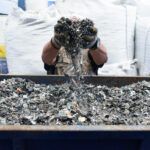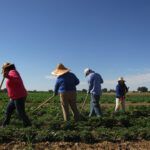The six best climate stories of 2023
By Jessica McKenzie | December 26, 2023
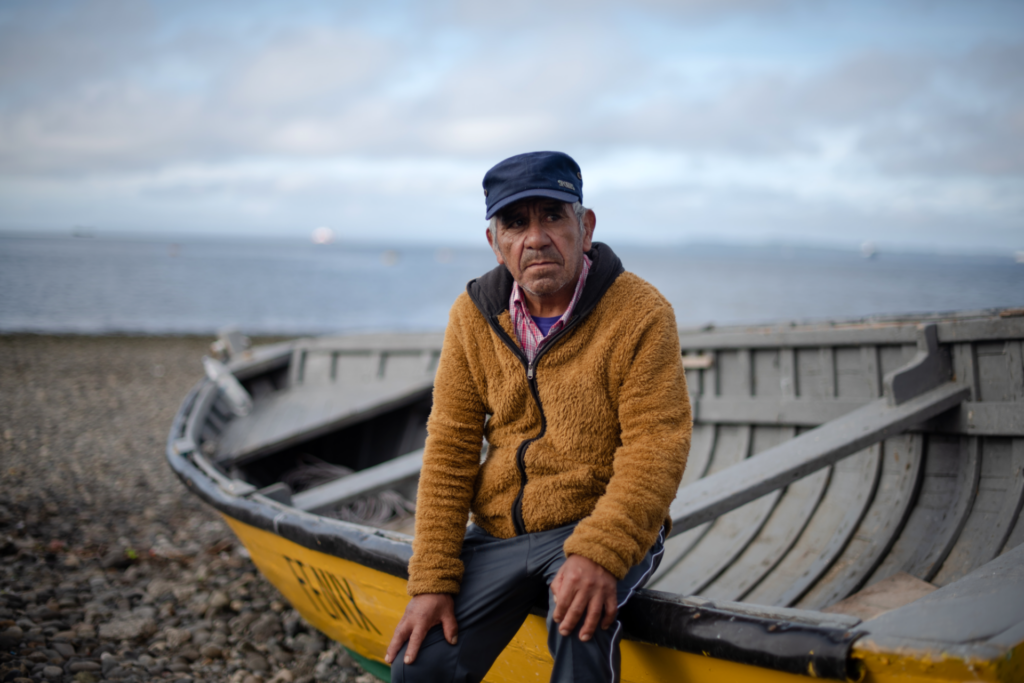 Jose Miranda Mancilla, president of the Pichi Pelluco Cove Union in Puerto Montt, explains the problems that artisanal fishermen have with the salmon aquaculture industry on February 27, 2023. (Photo: Cristobal Venegas)
Jose Miranda Mancilla, president of the Pichi Pelluco Cove Union in Puerto Montt, explains the problems that artisanal fishermen have with the salmon aquaculture industry on February 27, 2023. (Photo: Cristobal Venegas)
From rural Pakistan, to the fjords of Chile, to a glittering volcanic lake outside of Rome, the Bulletin’s climate coverage this year was truly global. These stories honed in on the expansive relevance of hyperlocal events: how climate crisis is leaving vulnerable farmers behind; the environmental impacts of intensive aquaculture; and the fraught challenge of water-use in an increasingly drought-prone world.
But the Bulletin didn’t stop there. Our authors also tackled a wide range of issues, from tipping points in the Earth system to rapid hurricane intensification to the challenges of protecting endangered and threatened species amid climate crisis.
After much deliberation—there were many excellent articles to choose from—we present the six best climate stories of 2023.
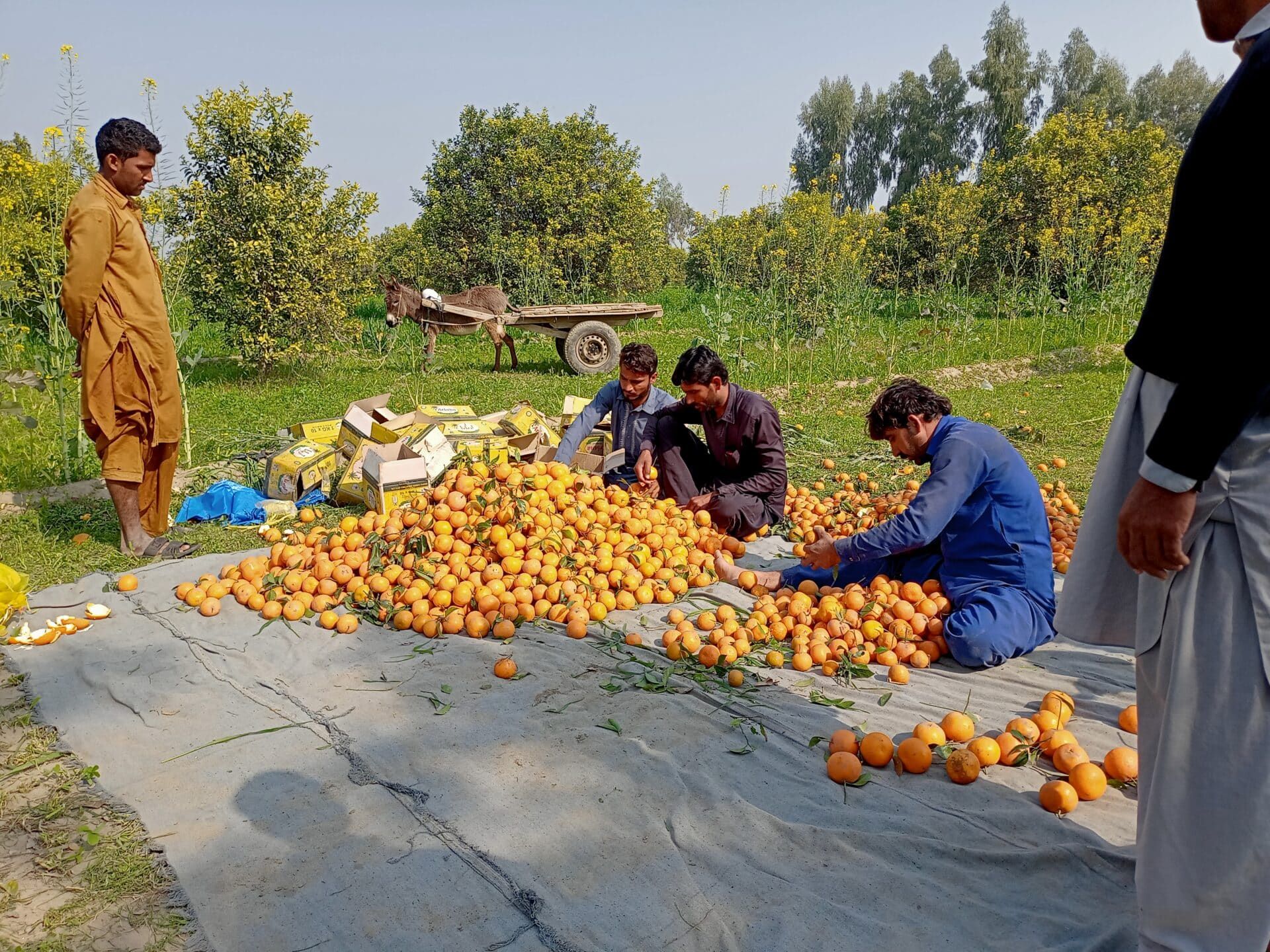
The ‘press and pulse’ of climate change strains farmers in Pakistan
By Zafar Imran
Based on hundreds of interviews Zafar Imran conducted in rural Pakistan as part of his fieldwork, this article describes the havoc that climate upheaval—from hailstorms to devastating floods to unforeseen heatwaves, to name just a few examples—has unleashed upon Pakistani farmers. Amid these drastic weather changes, the government has been of little to no use, failing to provide accurate forecasts (if it provides forecasts at all) or to share evidence-based adaptation techniques. The uncertainty within the country’s agricultural sector threatens to make food security even more widespread in the country.
Faster than forecast, climate impacts trigger tipping points in the Earth system
By David Spratt
Most Bulletin readers will be familiar with the concept of climate tipping points, or how climactic changes could cause profound changes within the entire system, relatively quickly. In this article, David Spratt makes the case that some of these cascading events are already occurring—not, as predicted, at 1.5 or 2 degrees Celsius of warming, but now—and others could soon follow. “There are fair and reasonable concerns that focusing on worst-case scenarios will cause public despair and paralysis,” Spratt concludes. “But when risks are existential, it is precisely those high-end possibilities of system collapse, rather than the middle-of-the-road linear probabilities, that must be the focus of concern and should spur the world to action.”
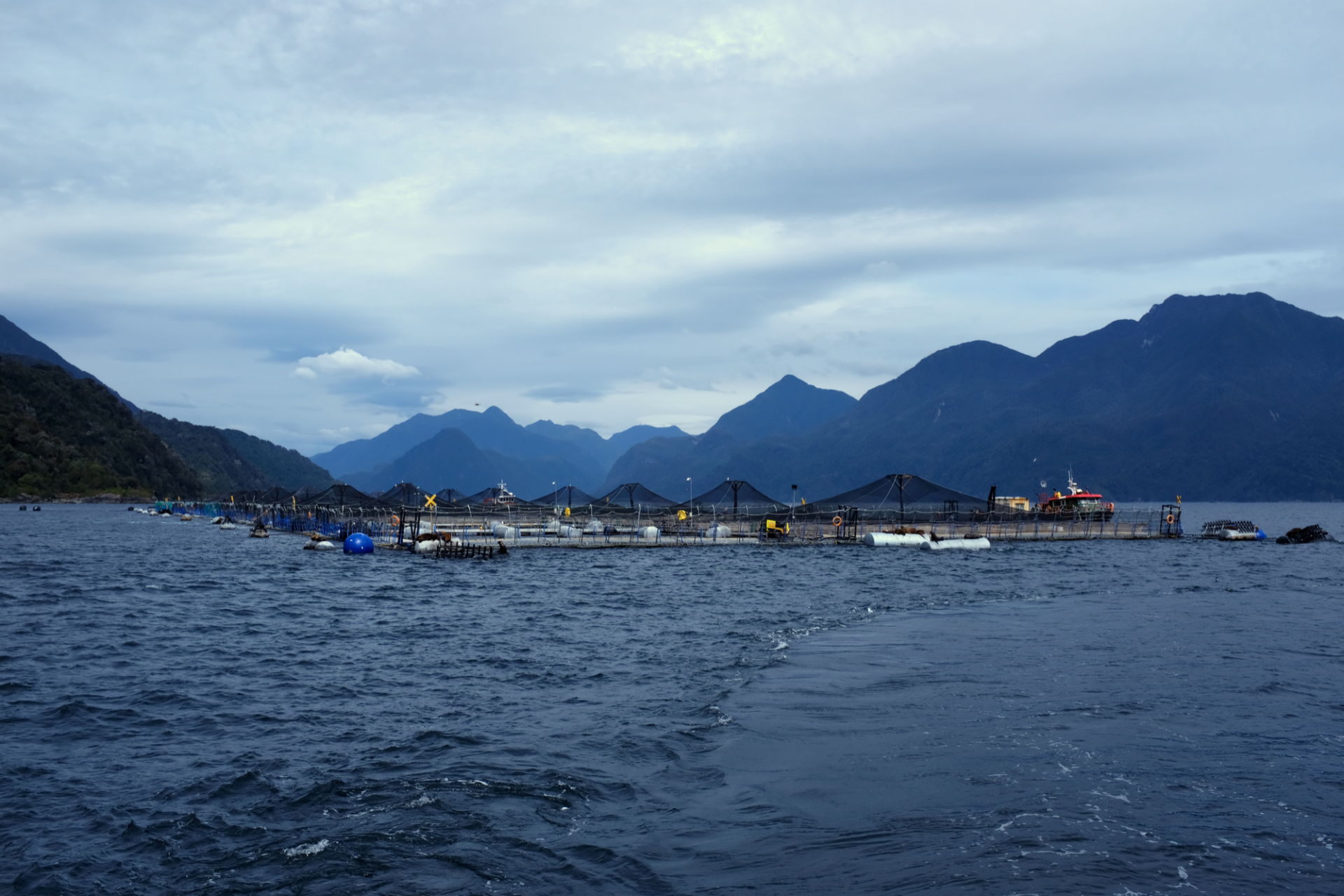
Patagonian paradise lost? The environmental hazards of farming fish in a warming world
By Jessica McKenzie
Earlier this year, I accompanied a group of environmental activists on a nine-day expedition to survey the salmon farms that have proliferated in Chilean Patagonia over the past few decades. Scientists, fishermen, and Indigenous residents described the many ways the industry is harming the region’s unique ecosystems and wildlife. The harmful algal blooms in 2016 and 2021 that killed millions of salmon—as well as many wild fish, shellfish, sea birds, and marine mammals—were made more likely by warmer ocean temperatures. Now that El Niño has returned, the conditions are ripe for another explosive algal bloom. Over a dozen Chilean farms have already activated contingency plans for algal blooms this year, and thousands of fish have died prematurely. Meanwhile, the less-visible impacts of salmon farming—the nutrient and chemical pollution, the dead zones on the ocean floor caused by eutrophication—continue to mount. Is it all worth the cheap and easy access to this popular protein?
Otis teaches a terrifying lesson in rapid hurricane intensification
By John Morales
The day before Hurricane Otis made landfall, experts believed it would do so as a relatively sedate, category 1 hurricane. Instead, in less than 24 hours, it morphed into a monster, 165 mile-per-hour category 5 cyclone. This kind of rapid intensification is increasingly likely with warmer sea surface temperatures due to climate change and short-term climatic variations like El Niño, meteorologist John Morales explains, and it is undermining the ability of experts to accurately warn communities about approaching storms.
Species protections lag behind climate-driven declines
Chad Small
By many metrics the Endangered Species Act is one of the most successful US laws of all time, but as Chad Small reports, the static and inflexible ways that species are determined to be “endangered” or “threatened” may not be able to keep up with risks from climate change. Many species that are not currently categorized as endangered or threatened are still experiencing population declines.
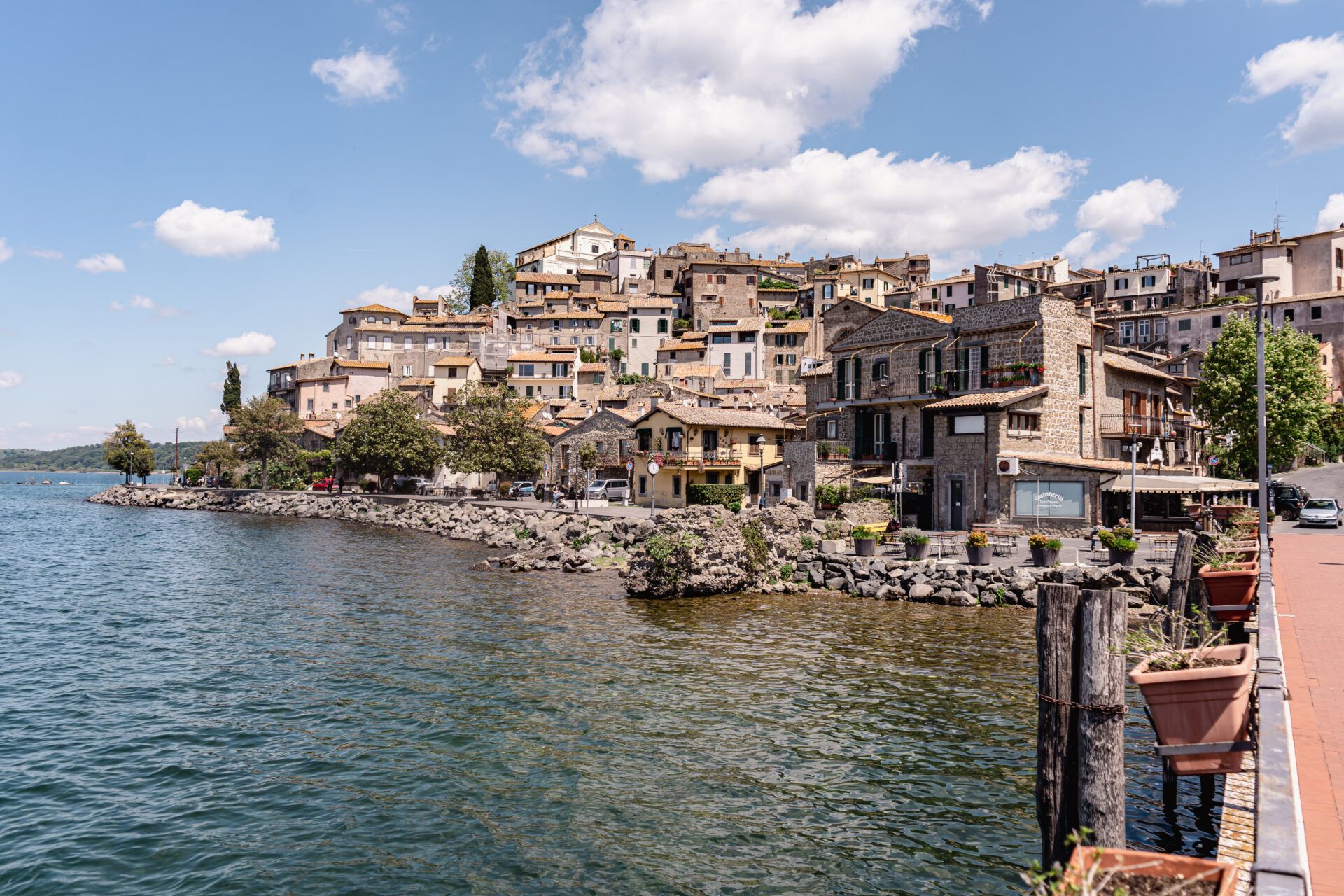
Italian utility in hot water for draining a picturesque lake to send water to Rome
Gabriele Di Donfrancesco
In 2017, during a drought in Europe, an Italian water company continued to withdraw water from a picturesque lake to send water to Rome, even after water levels fell dramatically, threatening the lake’s ecosystem and the communities who live near it. Now, a group of villagers have banded together to bring charges against the company for exceeding the water withdrawal limits in its permits—essentially, for breaking environmental law. This is the first time in Italy—and possibly in all of Europe—that a company is being held accountable not for polluting a lake, but for draining it. The case could set an important legal precedent.
Together, we make the world safer.
The Bulletin elevates expert voices above the noise. But as an independent nonprofit organization, our operations depend on the support of readers like you. Help us continue to deliver quality journalism that holds leaders accountable. Your support of our work at any level is important. In return, we promise our coverage will be understandable, influential, vigilant, solution-oriented, and fair-minded. Together we can make a difference.
Keywords: Chile, Italy, Pakistan, climate crisis, endangered species, hurricanes, tipping point
Topics: Climate Change

